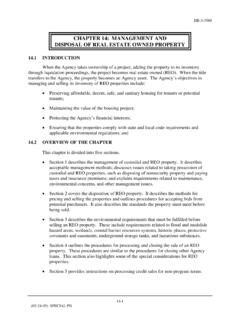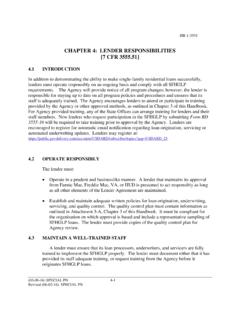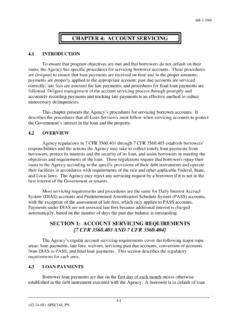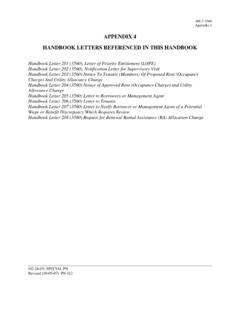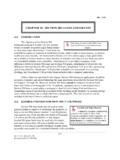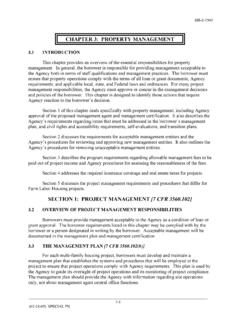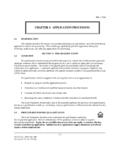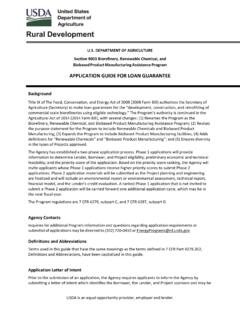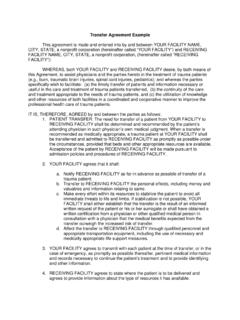Transcription of Understanding Cooperatives: Who Runs the Cooperative ...
1 Cooperative ManagementManagement of a Cooperative is often incorrectly thought of as including only the hired manager and his key staff. This is far from the truth. Cooperative management should be regarded as a team consisting of four elements members (owners), board of directors (elected), the manager (hired), and other responsible employees (paid). Each part of the team has its own distinctive duties and responsibilities for performing management functions in a Cooperative . This allows them definite, reserved rights in the ownership and con-trol of the business. These important rights give them the privilege of taking an active part in the management of the business. To be effective, each must exercise these rights; otherwise they will have no voice in management of a coopera-tive, therefore, is based on intelligent and active cooperation of the members with the board and with the manager/employees, each group shouldering its own responsi-bilities to the best of its , as a form of business owned and controlled by the people who use it, are the same as an opera in that they, too, have several important elements needed to be successful.
2 The most essential one is the people:u Members, as the owner-users;u Board of Directors, as the policymaking body;u Hired Management, as the supervisor; andu Employees, as the work has specific roles and responsibili-ties in the overall operation of a Cooperatives: Who Runs the Cooperative Business? Board of DirectorsCooperative Information Report 45, Section 5 When you think about an opera, there are several key elements you need for a successful performance the conductor, the musicians, a score, and the staging. These ele-ments work together to make it hap-pen the conductor serves as the guider; the musicians are the per-formers; the score is the composi-tion each person follows; and the staging is the process of putting it all together. United StatesDepartment ofAgricultureRural DevelopmentRural Businessand CooperativeServiceOctober 1994 Board of DirectorsMembersManagerEmployeesDuties and Responsibilities of the Board of Directors This section specifically discusses the responsibilities of the board of directors.
3 (Section 4 describes the responsibilities of members, while Section 6 discusses responsibilities of management/employ-ees.)A Cooperative is a user-owned and user-controlled business in which benefits are received in proportion to use. But it is not possible for member-owners to directly make all Cooperative decisions. That con-trol is preserved by members electing directors to represent them in much of the operation of the board of directors occupy a key position between members and hired man-agement. They represent the members as users of the Cooperative s services, and consequently must be informed about the needs and directions of the members. The board must also remember that the coop-erative functions for the benefit of those as a group, the primary responsi-bilities of the directors are to employ the manager, establish operating policies, and direct the Cooperative toward its overall discussing the roles of directors, those that reflect an obligation on the part of the individual person are listed as duties.
4 Those that require board members to act collectively are listed as Become familiar with the articles of incorporation and bylaws of the coopera-tive and conduct the business in accor-dance with their Attend regular and special meetings of the Understand the terms of all contracts into which the Cooperative has entered by authority of the board leases, loan agreements, membership and market-ing agreements, supply and other con-tracts, Be familiar with the State law under which the Cooperative was Understand the general legal responsi-bilities of serving on a board of Be responsive to new ideas and chang-es that are in the best interest of meeting member Commit to participate in training pro-grams to better understand the Cooperative s operations, and a director s role in addition to the general duties and pow-ers of directors as set out in the associa-tion s articles of incorporation and bylaws, the following responsibilities are particularly important:1.
5 Hire a competent manager; determine the salary, outline the duties and authority of the position, and formally review his/her performance at least Adopt broad, general policies to guide the manager and make them a part of the minutes. They should include such items as credit to patrons, source and limits of supply inventories, general personnel regu-lations, etc. It is the manager s job, rather than that of the board as a whole or as individual members, to make the detailed decisions on how to implement the board s policies. Once established, the board needs to monitor and review policies annu-ally and make changes when necessary. Remember, board members make policy decisions. They should not assume The board of directors occupy a key position between members and hired management. responsibilities that are clearly part of day-to-day Develop and adopt long-range business Require written monthly financial reports and operating statements for board meet-ings in order to be informed of adverse as well as favorable Direct the manager to prepare before the close of each year an operating budget for the next fiscal year for board approval.
6 This budget should estimate the volume of sales and gross income of various items to be handled, the expenses by account clas-sifications, and the net income expected. This constitutes necessary forward plan-ning on the part of the board and manage-ment. The budget should be reviewed at intervals throughout the year to determine the trends of the Employ a qualified auditor to make an independent audit at least once each year to determine the accuracy of the financial records. This audit, reported directly to the board, is used to evaluate the effectiveness of the policies and budget, performance of the manager, and insight into the effect of past decisions and the need for new ones. An audit is the primary method the board uses to report the financial condition of the Cooperative to its With the aid of the manager, plan and conduct the annual meeting to keep the membership informed about the status of their business, including operations, financ-es, and policies.
7 8. Determine the patronage refund alloca-tion, weighing legal requirements against the need for reinvesting refunds to provide money to retire old equities and still meet current capital needs. 9. Obtain competent legal Keep a complete record of the board s actions. 3A Cooperative director should not expect to be granted special favors from the man-ager or employees and does not have the following responsibilities:1. To act independently on matters that should be decided by the entire Be a representative of special interests, factions, or political entities. He/she was elected to direct the business activities of the Cooperative , not serve as a representa-tive of these SizeIncorporation law normally sets the mini-mum number of Cooperative members serv-ing on the board of directors. Most have an odd number such as five, seven, or nine. Extremely large boards can be cumber-some, slow, and expensive, while smaller boards can be more efficient and effective.
8 Generally, small boards will have more fre-quent and effective OfficersThe board officers are usually elected from within the board members, frequently at a re-organization meeting after the annual meeting. Each officer has specific duties as detailed in the Cooperative s officers are:u The president who presides at all meet-ings, carries out the members wishes, and watches over the association s affairs link-ing communication between hired manage-ment and members;u The vice president who, in the absence or disability of the president, performs the duties of the president;u The secretary who keeps a complete record of all meetings of the board of direc-tors and general membership and also is the official custodian of the Cooperative s seal, bylaws, and membership records;Each officer has specific duties as detailed in the Cooperative s of DirectorsThis circular is one of a continuing series that provides training information and presentations for education resource persons who may or may not be familiar with the Cooperative form of business.
9 This series provides the basic background material they need and in a form that can be readily adapted, with limited preparation time, to a lecture or other Department of Agriculture (USDA) prohibits discrimination in all of its programs and activities on the basis of race, color, national origin, age, disability, and where applicable, sex, marital status, familial status, parental status, religion, sexual orientation, political beliefs, genetic information, reprisal, or because all or part of an indi-vidual's income is derived from any public assistance program. (Not all prohibited bases apply to all programs.) Persons with disabilities who require alternative means for communication of program information (Braille, large print, audiotape, etc.) should contact USDA's TARGET Center at (202) 720-2600 (voice and TDD). To file a complaint of discrimination, write to USDA, Assistant Secretary for Civil Rights, Office of the Assistant Sec-retary for Civil Rights, 1400 Independence Avenue, , Stop 9410, Washington, DC 20250-9410, or call toll-free at (866) 632-9992 (English) or (800) 877-8339 (TDD) or (866) 377-8642 (English Federal-relay) or (800) 845-6136 (Spanish Federal-relay).
10 USDA is an equal opportunity provider and employer. u Knowledgeable about cooperatives and the job of a director, including listening to members;u Willing to accept the responsibilities and obligations of a director;u Someone who will work well with others as a team, and support majority decisions, even if not agreeing with them;u Open-minded in considering issues;u Representative of the goals and direc-tion of the members;u Recognized as a community leader; andu Honest and the candidate is seeking the job of director to gain a personal advantage or favors for friends, it is questionable whether that candidate should be elected. Electing someone to the board to gain that person s patronage is not in the long-term interest of the ultimate control of any corporation is legally in the hands of the board of direc-tors. In a Cooperative , however, the board is responsible to its members as users rather than to investors whose first objective is to maximize profits.
![CHAPTER 14: FUNDING [Official Agency Use Only]](/cache/preview/5/1/5/b/5/3/5/c/thumb-515b535cec62fd2bb25fbb788ef1c7a2.jpg)
